Important Happenings in
HIV/Health Policy
Week Ending: July 13, 2018
By: Matthew Rose & Sable K. Nelson
Ryan White Funding Clarification
A recent Slate article reported that internal documents from the Office of Refugee Resettlement, an agency within the Administration for Children and Families, which is itself a division of the Department of Health and Human Services (HHS), indicate that HHS plans to pay for child separation by reallocating money from the Ryan White HIV/AIDS Program. NMAC has been in direct communication with the HIV/AIDS Bureau (HAB) at the Health Resources Services Administration (HRSA). There are four (4) important pieces to mention:
- The funds that are allegedly being transferred are from Fiscal Year (FY) 2016 funds that were returned to HHS after not being spent by eligible Ryan White grantees.
- HAB staff was unable to state exactly how much FY 2016 funding was being transferred.
- However, it was very clear that those funds do not have any impact on the operation or schedule of Ryan White funding for FY 2018 or can the be used by any current parts of the Ryan White Program.
- The HHS Secretary has limited authority (generally referred to as “transfer authority”) to shift funding between accounts and programs when specified by law. That authority is limited to discretionary accounts and no appropriation may decrease its budget by more than one percent.
Appropriations Update
After a marathon 13-hour markup that touched on a range of contentious issues including the Affordable Care Act, abortion, and the Trump administration’s separation of migrant families at the border, members of the House Appropriations Committee voted along party lines (30-22 vote) to approve a $177.1 billion Labor-HHS-Education spending bill for fiscal year 2019. The panel ultimately adopted 18 amendments, with 14 coming from Democrats and another four offered by Republicans. The vote keeps the legislation on track for full House floor consideration, though several of its most controversial provisions would be unlikely to survive once action shifts to the Senate, where the 60-vote threshold requires support from some Democrats. For more information, READ → https://www.fiercehealthcare.com/hospitals-health-systems/house-lawmakers-take-aim-at-family-separations-during-hhs-appropriations
CMS Expected to Propose Cuts to More 340B Providers
The Centers for Medicare and Medicaid Services (CMS) is expected to expand the number of 340B health facilities that will be impacted by payment cuts for all physician-administered drugs. The proposed rule would slash Medicare Part B drug payments to 340B hospital outpatient facilities offsite by nearly 30 percent. The change is expected in the proposed 2019 Physician Fee Schedule Rule, which could be released as early as Thursday of next week. It would impact hospitals that qualify for the 340B program’s steep drug discounts because they serve a disproportionate share of low-income and under-insured patients. The Trump administration has cited the 2018 change in payment to 340B facilities as a move to lower drug costs. It estimated Medicare beneficiaries would save about $320 million on drug co-payments in 2018 because patients’ out-of-pocket costs are tied to what Medicare is billed for the drugs. The administration maintained that the lower reimbursement rate is closer to what hospitals pay for the drugs. Hospitals in the program say 340B was specifically intended to pay more because of the challenges of the populations they serve. For more information, READ → https://www.politico.com/newsletters/politico-pulse/2018/07/12/cms-expected-to-propose-cuts-to-more-340b-providers-276689
What You Can Do
TAKE ACTION: It is very important that our elected officials hear from us to protect federal HIV funding for HIV prevention and care. Speak truth to power by sharing your personal stories with your elected officials. It is vitally important to meet to your federal elected officials when they are at home. If we don’t support and advocate for HIV funding and programs, who will? Our movement cannot afford to stand on the sidelines. Your U.S. Senators and U.S. Representatives need to hear from you.
- Find your U.S. Senators: https://www.senate.gov/general/contact_information/senators_cfm.cfm
- Find your U.S. Representative: https://www.house.gov/representatives/find-your-representative
Also, MAKE SURE THAT YOU ARE REGISTERED TO VOTE in time for the primary and general elections happening this year!
| Minnesota | 7/24/2018 |
| Wisconsin | 7/25/2018 |
For more information, VISIT→ https://www.eac.gov/voters/register-and-vote-in-your-state/
Finally, PARTICIPATE IN THE PRIMARY ELECTION(S) in your state!!!
For more information, VISIT→ http://www.ncsl.org/research/elections-and-campaigns/2018-state-primary-election-dates.aspx
Opportunities for Input: Let Your Voice be Heard
Leading up to the US Conference on AIDS (USCA) in September, Act Now: End AIDS will solicit community input to inform the creation of an federal plan to end the epidemic. It’s important that we hear from affected communities from around the country in four primary ways:
- An online recommendation form at https://survey.co1.qualtrics.com/jfe/form/SV_eWde8Hsj4p0L4UJ . SUBMISSIONS DUE BY AUGUST 10TH.
- Online webinars covering key recommendation topics ( prevention and testing, care and treatment, structural interventions, research, viral hepatitis, sexually transmitted infections, opioids and the overdose epidemic, data and metrics.
- Web-based meetings and conference calls led by and soliciting input from specific affected communities
- An in person pre-USCA meeting to discuss an early draft of the plan to be held on September 5th in Orlando, FL
We invite you to use any and all of these options to provide recommendations for the plan. The online form may be used for as many recommendations as you want to submit. While individuals are absolutely invited to submit online recommendation forms, we also encourage submissions from groups.
What NMAC is Doing About It
- NMAC remains vigilant in its advocacy to protect FY19 government funding and the existence of the social safety net.
- NMAC releaseda Biomedical HIV Prevention “Blueprint” entitled Expanding Access to Biomedical HIV Prevention: Tailoring Approaches for Effectively Serving Communities of Color, a new report that establishes strategies to effectively use techniques such as Pre-Exposure Prophylaxis (PrEP) and Treatment as Prevention (TasP) to end the HIV epidemic in communities of color. The full report can be found by visiting nmac.org/blueprint.
- NMAC will continue to meet with the administration around priority areas of people of color, pushing for greater access to coverage and making them aware of the challenges affecting people of color
- NMAC is coordinating three of the ending the epidemic stakeholder calls for older adults, Native Americans, and Asian Pacific islanders.
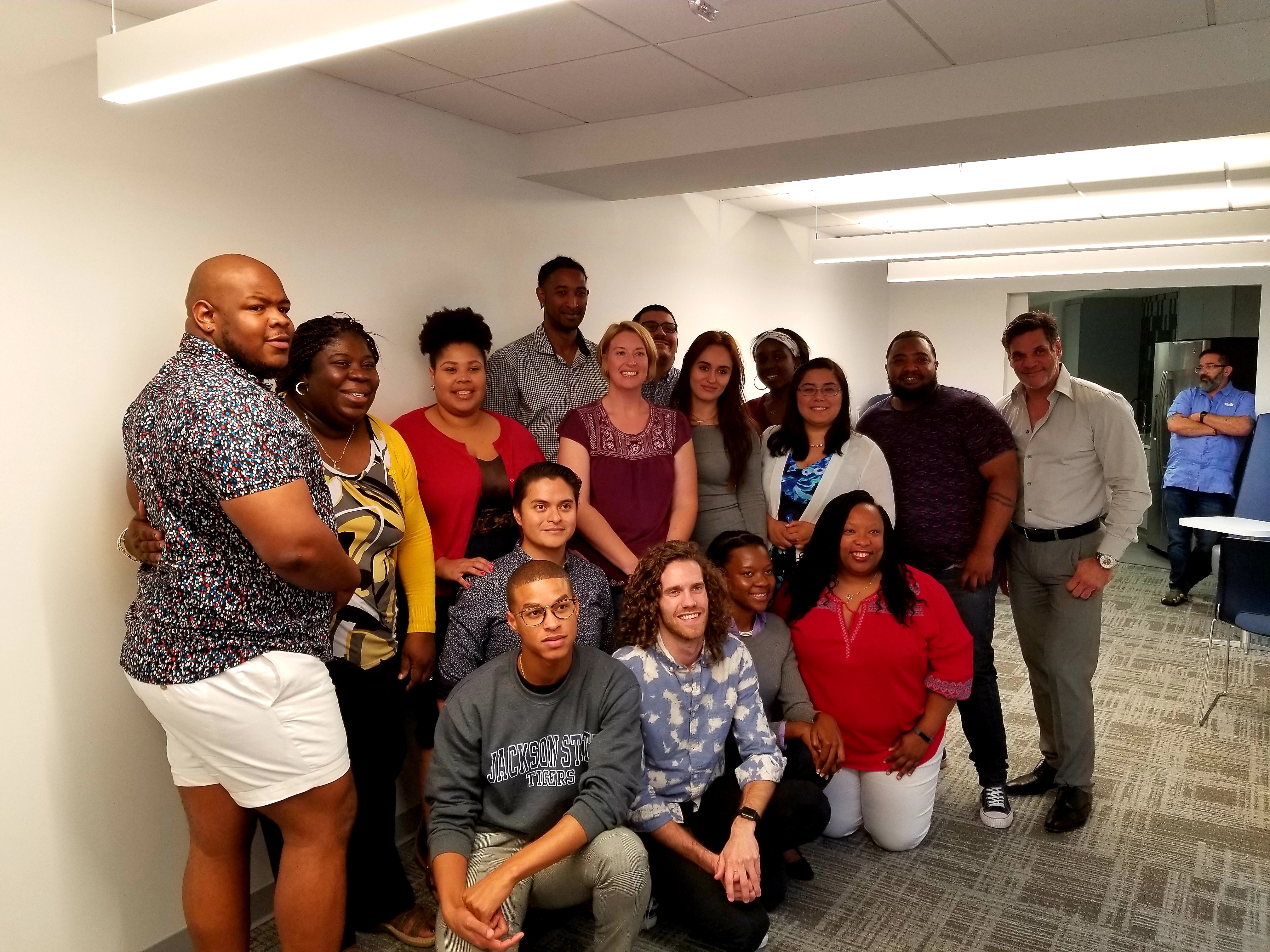


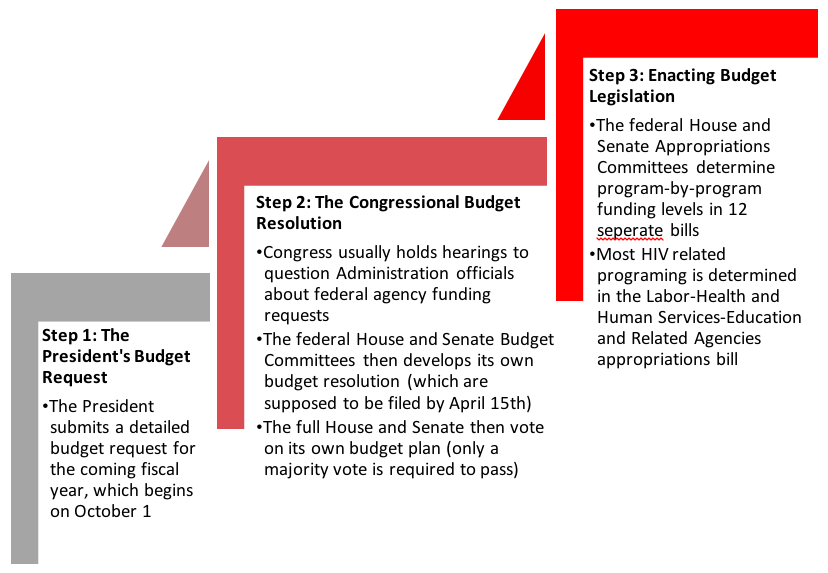
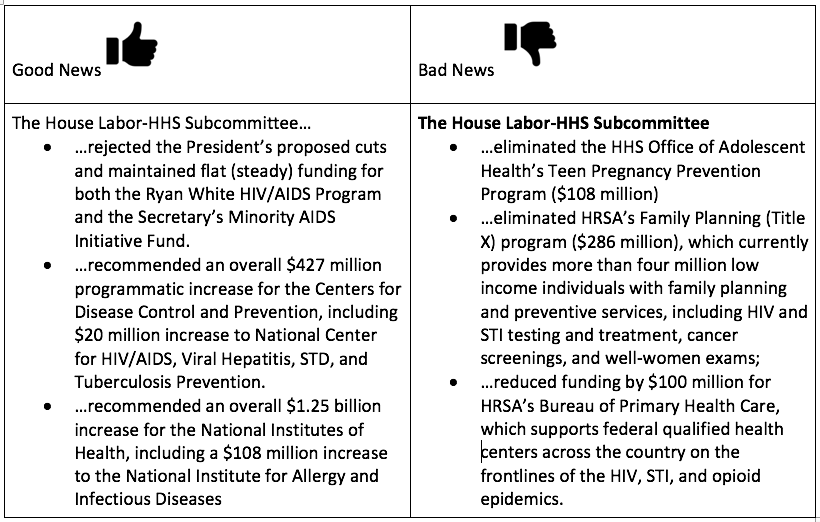

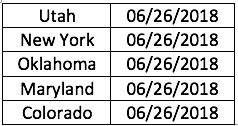
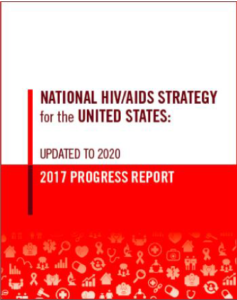

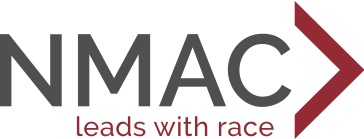

 NMAC opposes the Trump Administration’s proposed “gag rule” to remove Title X family planning funds from providers that offer abortion services or referrals. Such providers are a vital, life-saving point of entry to care for people living with HIV and to prevention services for those at higher risk for HIV, particularly people of color and those in lower-income communities.
NMAC opposes the Trump Administration’s proposed “gag rule” to remove Title X family planning funds from providers that offer abortion services or referrals. Such providers are a vital, life-saving point of entry to care for people living with HIV and to prevention services for those at higher risk for HIV, particularly people of color and those in lower-income communities. 
 an Option A or B Scholarship is 5:00 PM EST, Friday, June 29.
an Option A or B Scholarship is 5:00 PM EST, Friday, June 29.
 June is LGBTQ Pride Month. While NMAC is not an exclusively LGBTQ organization, we were founded by LGBTQ activists in some of the darkest days of the HIV epidemic.
June is LGBTQ Pride Month. While NMAC is not an exclusively LGBTQ organization, we were founded by LGBTQ activists in some of the darkest days of the HIV epidemic. NMAC‘s Capacity Building Division will present A Novel Demonstration of HIV Navigation Evaluation webinar Wednesday, June 13, from 1:00 PM – 2:00 PM EDT.
NMAC‘s Capacity Building Division will present A Novel Demonstration of HIV Navigation Evaluation webinar Wednesday, June 13, from 1:00 PM – 2:00 PM EDT. Congress is entering the third and final step of the Appropriations process for 2019. In the coming months, they will make final decisions on all federal funding, including for HIV/AIDS care, prevention, and services. That means it’s time to call, e-mail, or visit your Members of Congress and tell them to keep federal funding intact. Read the
Congress is entering the third and final step of the Appropriations process for 2019. In the coming months, they will make final decisions on all federal funding, including for HIV/AIDS care, prevention, and services. That means it’s time to call, e-mail, or visit your Members of Congress and tell them to keep federal funding intact. Read the